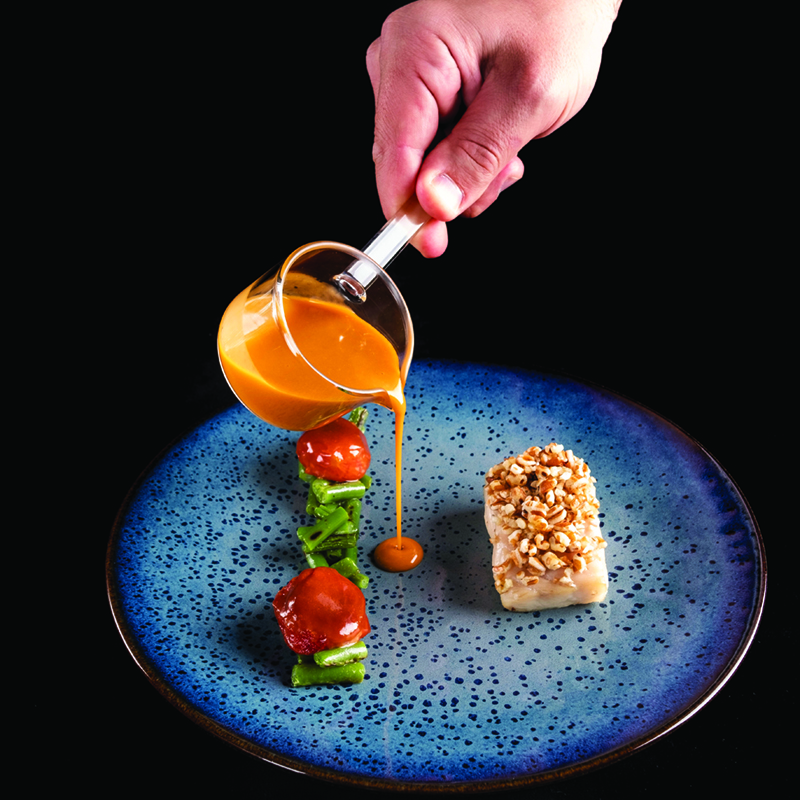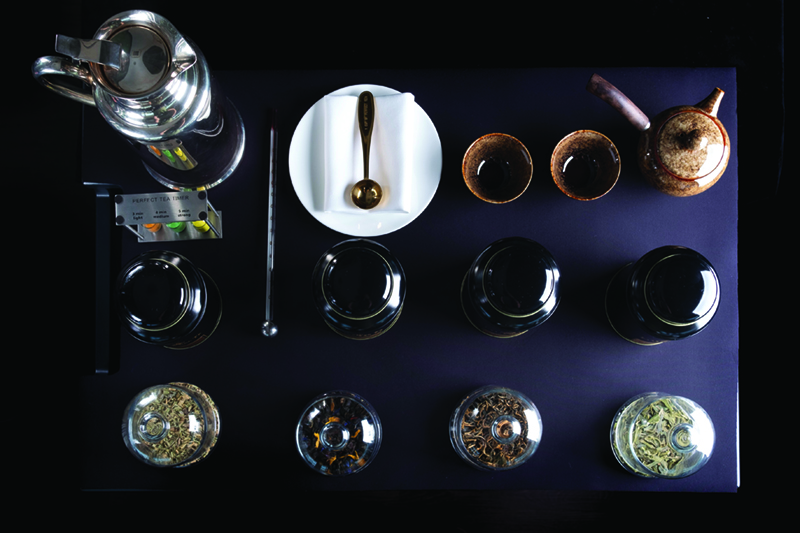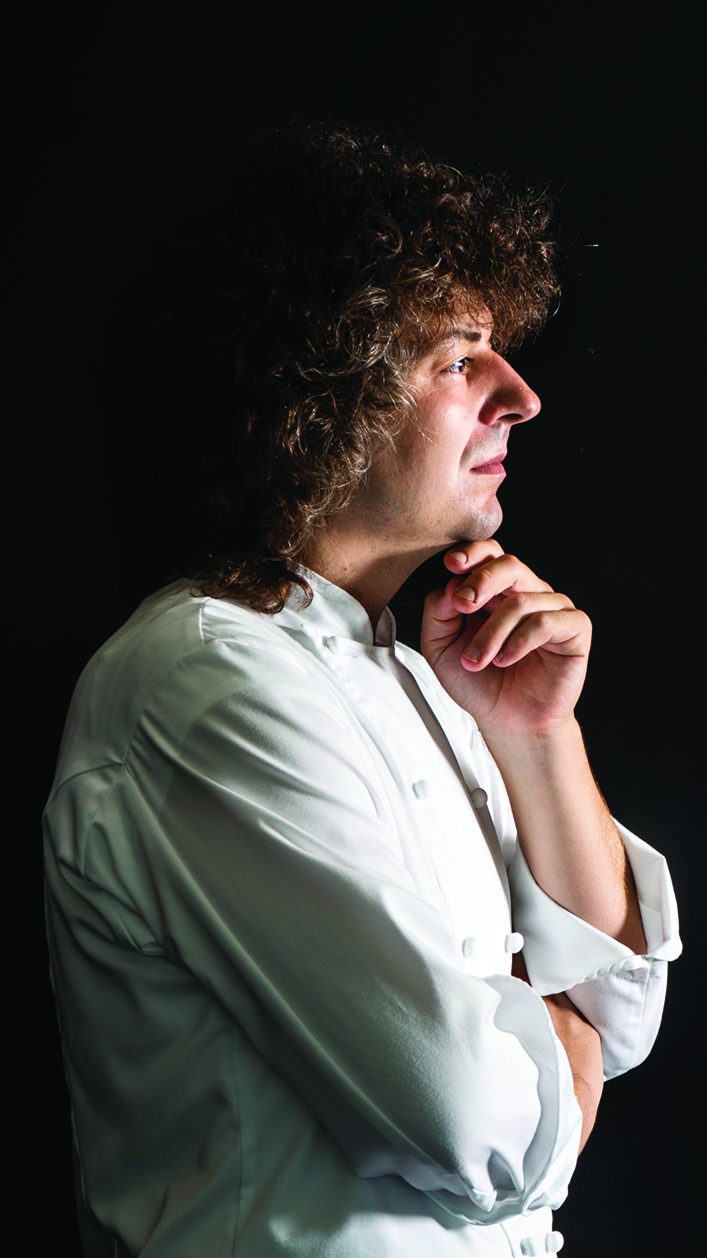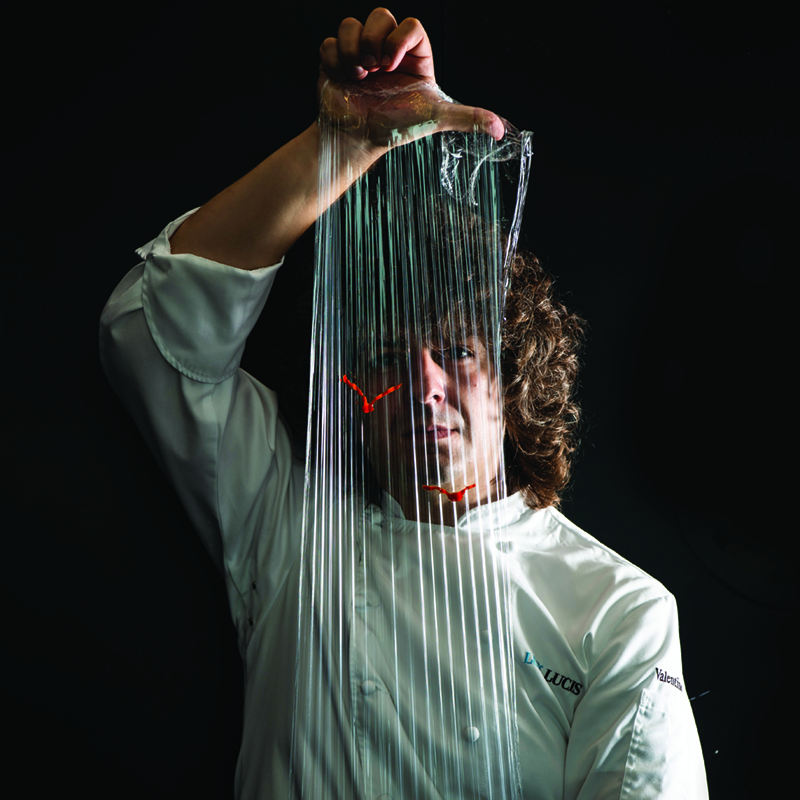Interview with Valentino Cassanelli
Intelligent, creative, talented, with dark black curly hair that falls in cascades and with the look and smile only a great chef can possess. Valentino Cassanelli is considered by many food critics as one of the best exponents of Italy’s culinary industry. His dishes are true work of art and a free expression of Italian cuisine, drawing inspiration from his life experiences and from the rich biodiversity of Forte dei Marmi. Chef Cassanelli shares with Delicious his love for food, his creative process and the importance of freedom to create.

What does food mean to you?
Food is life. It is nature, culture and an expression of myself. Every day I work with my team to try and understand more about our territory and its traditions. We work with a free mind and in a sustainable way that gives our guests the very best gastronomic experience and a true reflection of the country. Food is the centre, our means of communication.
Why is travelling an important source of inspiration?
I love travel and it is one of my passions. Travel helps me learn and to experience new things. Not just new ingredients, but how to approach food differently. Through travel I can exchange ideas and look at new cultures and traditions. Then I can explore and reflect on my own cultures and traditions. Travel helps me find inspiration.
In what way has London turned out to be a game changer in your food journey?
I was only sixteen years old when I went to London for the first time. For a young boy from a countryside town in Italy, it was an explosion of inputs, a melting pot of cultures and identities – with some of the best food from all corners of the world. Everything was exciting and it showed me what was possible. London has helped me develop as a chef and as a man. The city is part of me now, part of my identity, part of my roots.

Do you have any specific creative process?
It’s hard to trace a static method, as the creative process behind each of my dishes constantly changes. The seasons tend to influence my creative process, that’s for sure. My other sources of inspiration come from specific locations. It’s important that my food represents emotions, that’s what I try to transmit to the palate. To do this, I use the seasons and what ingredients are available, applying my techniques and experiences to develop a dish and tell a story. Building dishes I can then compose a menu that tells a story and takes the guest on a journey.
You have often noted, “Focus should be on trying what is possible and keeping an open mind.” Can you elaborate?
A chef should be an ambassador of their territory. It is important to know the region and to learn all you can from old styles and techniques, only then can you apply modern touches. An open mind is important. We are always learning. Stay curious and try to exchange ideas and techniques with other chefs. Travel helps. As does eating. Taste. Taste. Taste. Experience life and open your mind to new opportunities because this will make you better and help create the best you and in doing so, create a better experience for your guests.
In what way has London turned out to be a game changer in your food journey?
I was only sixteen years old when I went to London for the first time. For a young boy from a countryside town in Italy, it was an explosion of inputs, a melting pot of cultures and identities – with some of the best food from all corners of the world. Everything was exciting and it showed me what was possible. London has helped me develop as a chef and as a man. The city is part of me now, part of my identity, part of my roots.

How does your geographic surroundings influence your cooking?
In the incredible region of Versilia, I am close to the sea and the beautiful mountains are close by, too. Both continue to inspire and influence me. The Tyrrhenian Sea is only 200 meters away, and the Apuan Alps in northern Tuscany are just fifteen kilometres from us. Between the mountains and the sea, there is a very unique territory that has an abundance of ingredients. Thanks to its geography, Forte dei Marmi is quite an exclusive town, but at the same time, it’s within easy access to many artistic cities, connected by very good transport facilities. In normal situations, there’s a real buzz to the local economy thanks to international tourism. In the low season, however, it’s quieter and allows us to dedicate our time to researching new menus and to travel. The location is also important for our wine pairing with an abundance of incredible wineries in Tuscany, both large and small.
Why do you constantly stress on the importance of experience in any dining process?
This is important because when you travel, food is a means of getting to grips with somewhere, to really understand a place. A great dining experience can teach you a lot about a location, allowing the chef to communicate with a guest via flavour and their senses. But not just flavour, the setting plays an important role too, as does service. A dining experience is more than just the food, it is about enjoyment and taking the diner on a journey or discovery and re-discovery. We want to create memories for them, memories of the mind and memories of the heart.
In what way do you feel that the COVID-19 pandemic affected the concept of ‘fine dining’ as we traditionally know it?
For us, like for many, it has been a pretty tough time. Many things had to change. Not just in our business, but in our personal lives, too. It was very important for us that we kept a positive attitude and that the mood within the business was high, despite working through such an unstable period and not knowing when the rules would change. Fine dining is actually a very small part of the industry, but it’s an important one because we understand that guests like to treat themselves and experience new things. Settings and business models might change, but people are always in search of happiness and fine dining offers that. There is beauty and culture and happiness in food. We can help offer that.
Why is it not all doom and gloom for the post COVID-19 pandemic Italian gastronomic industry?
It has certainly been a difficult and challenging time. The pandemic has affected people’s health and hit them economically, too. Italian gastronomy, though, has always been strong and proud. It has global recognition and those who remain positive and remain brave, will weather this storm and resurface in a new rinascimento.
Any projects in the pipeline?
Lux Lucis is my present and my future. Like many chefs, though, I have a lot of different projects happening in the background, working with my brigade team on a free expression of Italian cuisine, and exploring my passion for the world of food, beverage and hospitality.


